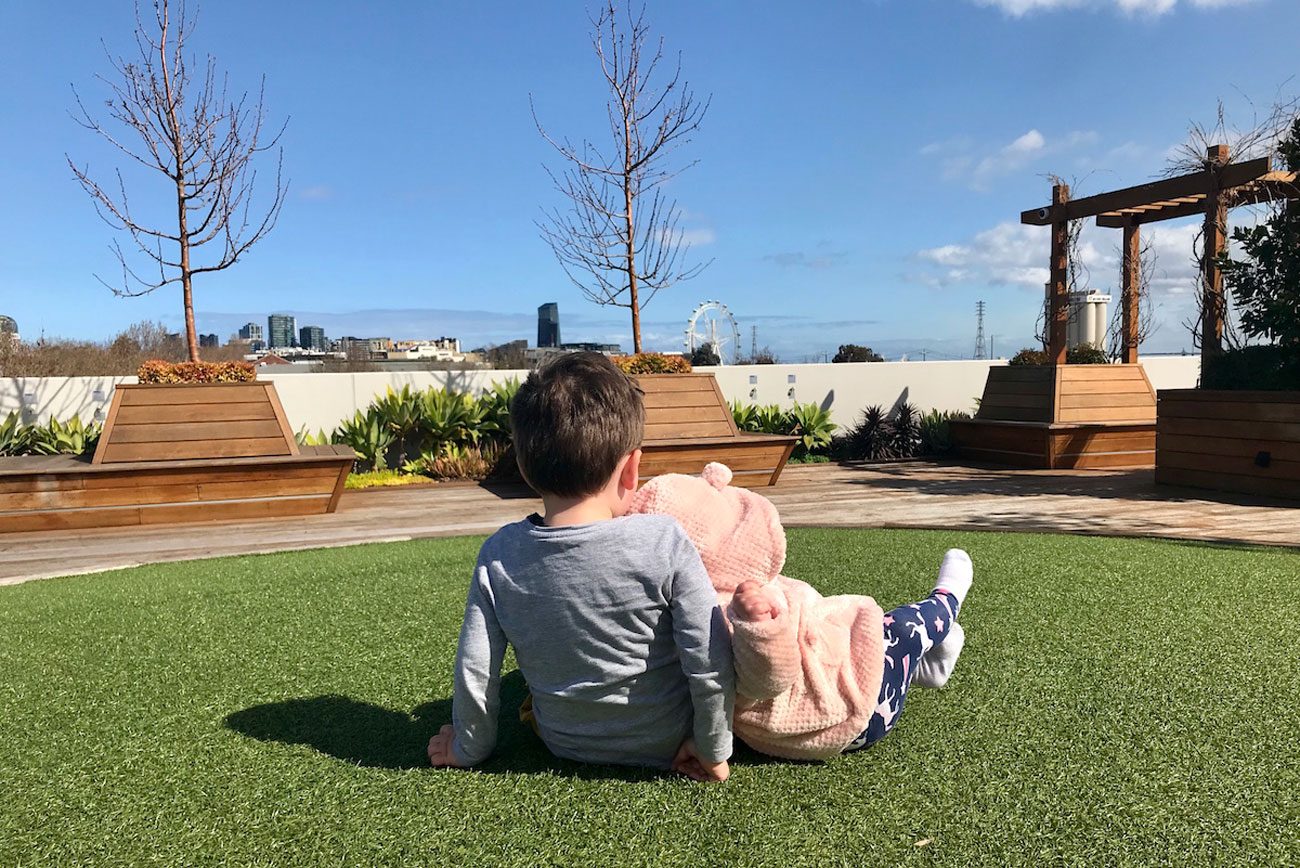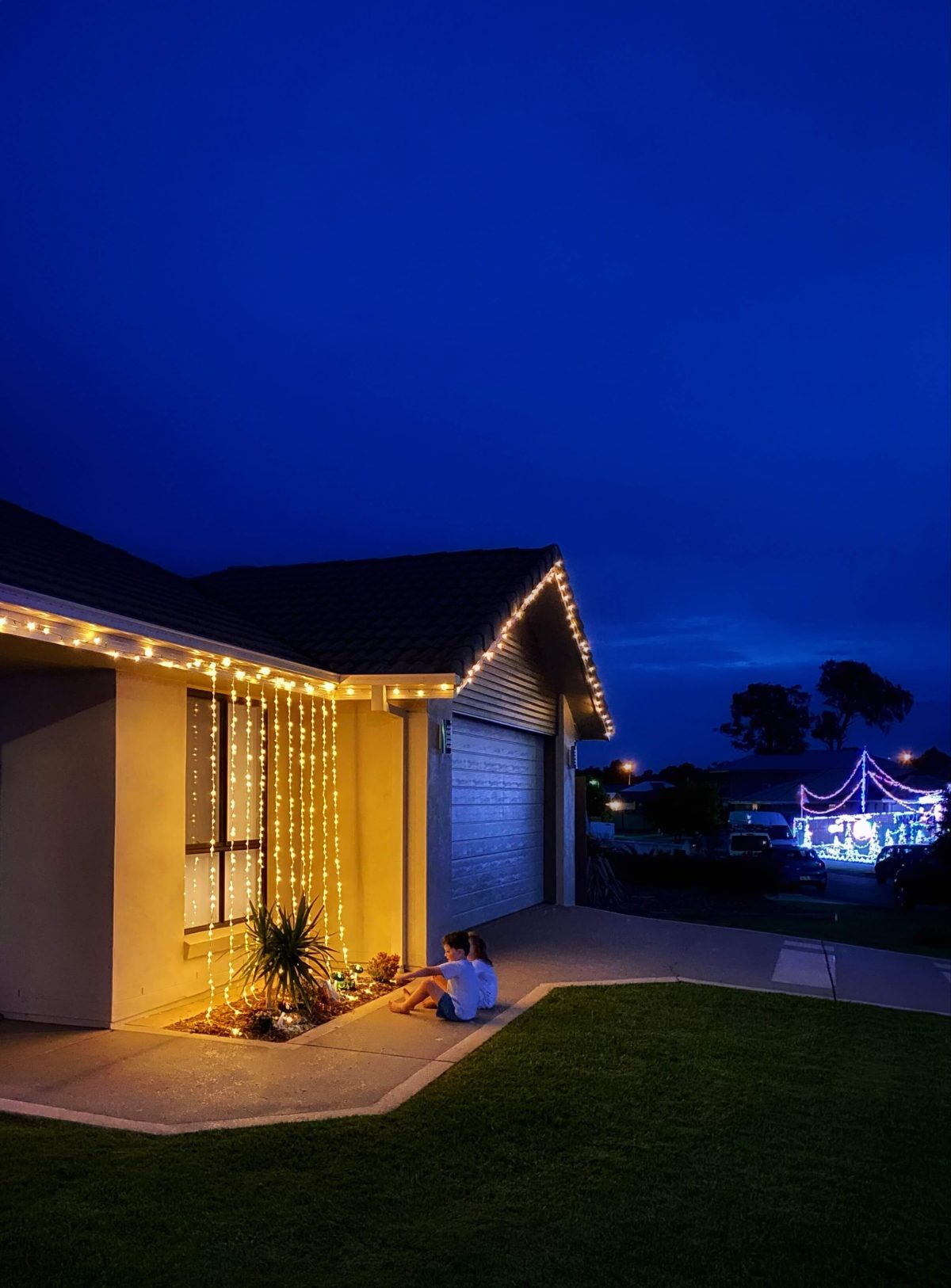
When her kindy kid was being cheeky, Natalie Moutafis found herself reminding him that Santa was watching – and then wondering if this was the best approach.
‘Santa is watching.’
I’ve heard myself (and my husband) utter those words more times than I care to admit as we edge closer to Christmas Day.
It started when the almost 5-year-old Tiny Human noticed the security system in our (new to us) home. For reasons unbeknown to us, he decided that the flashing red light on the sensors was, in fact, Santa watching.
We didn’t agree or disagree at the time – just uttered something like, ‘Oh, you think it could be?’
On and off since then, when our kindy kid knows he’s done something he probably shouldn’t have, we’ve caught him casting an eye upwards to see if the light is flashing – which it inevitably is because it’s a motion sensor.
I initially didn’t think too much about this white lie to encourage positive behaviour because I remember being told similar things as a kid.
But then I began to worry that I shouldn’t be perpetuating this lie using Santa as a bribe or threat to get my kids to do what I want. Feeling this way, wondering how we were using Santa on our kids, I was starting to feel guilty. Then I listened to this Life Kit: Parenting podcast episode, Is it OK to lie about Santa and the Tooth Fairy?
For me, Christmas is magical and filled with delight and surprise. I don’t want our kids to feel like they won’t receive a gift from the man in red himself on Christmas morning simply because they made a poor choice at some point. They are tiny humans; they are meant to push boundaries and test limits (and patience!). That shouldn’t mean that they are then worthy or not of a gift from Santa.
In the Tiny Human household, we participate in and love celebrating Christmas, including all things Santa. So I’ve been trying to curb my ‘Santa is watching you’ line of bribery to get my children to do as I wish. I’m not about to turn around and shatter the belief (although I’m well aware this is becoming more and more common), but I’m trying to approach it a little more openly and with no strings attached.
We want to encourage the healthy and age-appropriate enjoyment of make-believe, as Dr Rosmarie mentioned in the podcast. Knowing our children are secure in their relationship with us, keeping the magic alive works for our family.

When we talk about Santa, we talk about how he gives gifts to be kind and generous to others, and that we then do the same with family and friends. We also talk about how different families believe in different things. It introduces the idea that people are allowed to have other belief systems.
I’m now also using the takeaways that I heard on Life Kit: Parenting, and when the kindy kid asked me more recently if Santa was ‘for real life’, I asked the question back to him ‘do you think Santa is for real life?’. He, of course, answered yes. He was happy with this and went on his merry way.
I’m also taking opportunities to remind them that Christmas is about spending time with loved ones. That doesn’t mean I’ve stopped encouraging the ever-changing wish list of toys or writing letters to Santa. I’m actively encouraging these activities. But I hope we’re finding a better balance for these tiny humans to understand that if we always choose to be kind, kindness will come back to us in many ways.
So yes, Santa is watching in the Tiny Humans household, but my children are also learning that they receive presents from family and Santa.
Get our updates direct to your inbox hereAbout Natalie Moutafis
Natalie Moutafis is the author of our Tiny Humans blog, providing her engaging and insightful take on life with two young children. Natalie is also a project manager at ISV.
Like this post? Please share using the buttons on this page.

